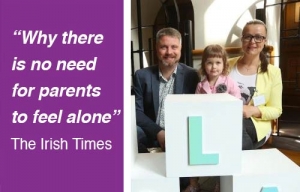“A combination of positive parenting and a good home learning environment
can transform a child’s life chances”Review on Poverty and Life Chances: Frank Field (2010)
All parents need some support in their child rearing role but, in certain circumstances and contexts, some will need additional support. However, the life prospects of some children within society are much worse than others. Certain risk factors (such as poverty) that affect children can change or impact differently at different times in their lives.
Parenting support is seen as having the potential to improve educational outcomes and reduce the risk of criminal behaviour, and improved parenting skills are seen as contributing to the reduction of poverty and social exclusion (European Commission, 2013)
The most important finding is that parental involvement in the form of ‘at-home good parenting’ has a significant positive effect on children’s achievement and adjustment even after all other factors shaping attainment have been taken out of the equation. The impact caused by different levels of parental involvement is much bigger than differences associated with variations in the quality of schools (The Impact of Parental Involvement: Desforges & Abouchaar, 2003)
Supporting parents and their parenting has been highlighted as a priority in scientific, educational and policy research. This is largely due to the increase in evidence on factors that influence childhood development and learning. The weight of evidence in favour of home visiting programmes for preschool children is the reason why the Council on Community Pediatrics published a policy statement in the US (2009) recommending that evidence-based home visiting programmes should be expanded and developed as an effective (and cost-effective) means to reducing inequalities in children’s health, school readiness and development.
Home-based Parenting Programmes
There is a wealth of evidence to indicate that home based parenting programmes work in terms of improving both parent and child outcomes. Healthy child development relies on families being able to provide a safe and nurturing environment for their child and research evidence tells us that if we want to improve outcomes for children, then educating parents is more effective than intervening directly with children. Children benefit more if intervention takes place early and the most effective interventions are those which take place in the parent’s home. We also know that the programmes which work best are those that provide regularity and intensity of inputs through one-to-one home visits over at least a year although two to three years of intervention are more likely to sustain gains over time.
Several systematic reviews of such programmes provide strong evidence that home based parenting programmes make a real and important difference to both parent and child outcomes including health care use, birth outcomes, health behaviours and child wellbeing and development. More specifically, home visiting programmes have been shown to improve: the quality of the home environment, attachment, cognitive development and socio-emotional development; reduce the incidence of child abuse; foster improved parent behaviour, skills and attitudes as well as enhance maternal life course outcomes.
In addition, the recent (2014) Home Visiting Evidence of Effectiveness (HomVEE) review concluded that of the effective programs they reviewed: most had multiple favourable effects, many of these were maintained for over a year and the results were not limited to certain subgroups (i.e. racially, ethnically and socioeconomically diverse)
The evidence shows that the best and most economically efficient way of supporting parents is to make available to families, parenting supports that are: (1) appropriate to the needs of parents bringing up children in a range of different contexts and circumstances and (2) that can be shown to produce the desired outcomes.
The most recent evidence (2012) on what works best for families and children, indicates that the best parenting support programmes:
- Involve one-to-one support/home-visiting based on systemic programme content
- Are evidence-informed, based on a sound theoretical framework and designed by experts
- Evidenced-based – empirically proven to generate the outcomes they claim to generate
- Manualised, well-structured programmes that are quality assured to ensure fidelity
- Delivered by appropriately trained staff supported by good management, supervision and implementation procedures
- Are of sufficiently long duration with booster/thematic sessions based on need
- Are socially inclusive and successfully engage and retain ‘high risk’ groups
- Build local social capital and support parental participation
- Work in partnership with communities
- Work in partnership with local health, social care and educational professionals
- Respond to the needs of statutory service systems, service commissioners and purchasers
- Develop referral, reporting and implementation policies and procedures that directly and explicitly meet those needs
The Lifestart Foundation, through its extensive experience in delivering quality parenting support has evolved a model of practice that is in keeping with every aspect of best practice in the field of family support.

